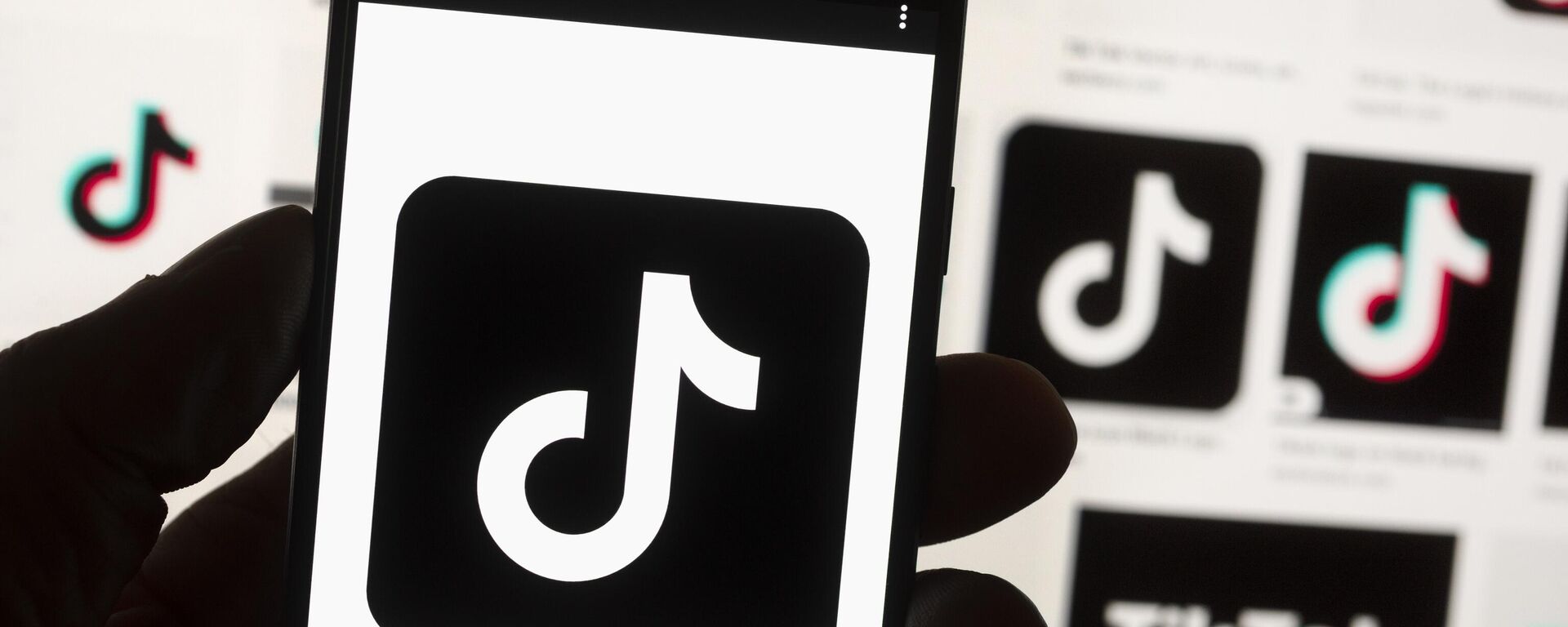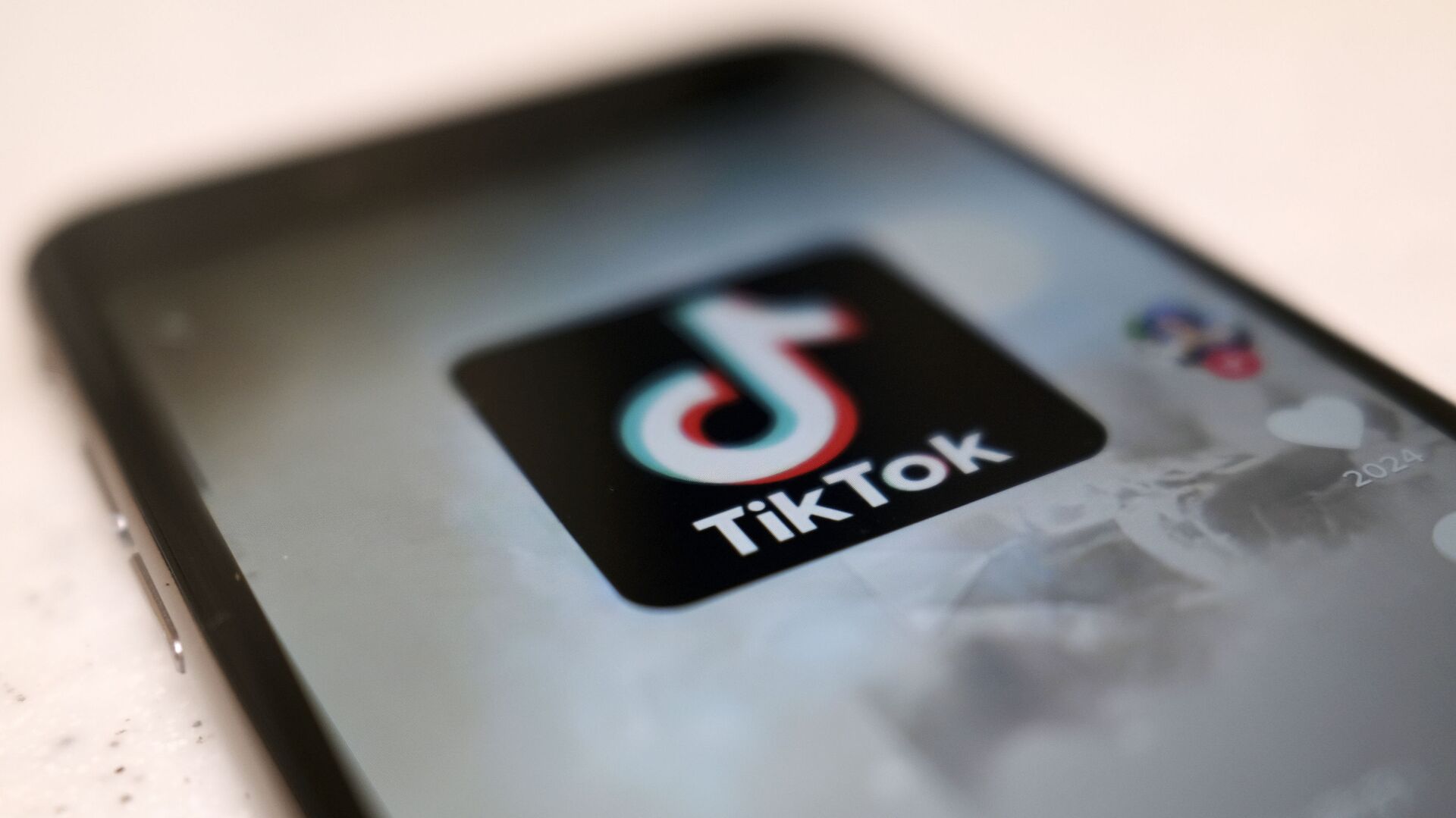https://sputnikglobe.com/20230301/china-blasts-tiktok-ban-says-push-shows-us-insecurities-over-young-peoples-favorite-app-1107887554.html
China Blasts TikTok Ban, Says Push Shows US Insecurities Over 'Young People's Favorite App'
China Blasts TikTok Ban, Says Push Shows US Insecurities Over 'Young People's Favorite App'
Sputnik International
In 2020, then-President Donald Trump attempted to ban TikTok as a "national security threat" the move was decried by democratic critics as a dangerous step for free-speech.
2023-03-01T04:42+0000
2023-03-01T04:42+0000
2023-03-01T04:42+0000
science & tech
tiktok
bytedance
aclu
china
washington dc
https://cdn1.img.sputnikglobe.com/img/07e4/0a/0c/1080742107_0:161:3071:1888_1920x0_80_0_0_bb6038ffa542852ae5b4dc4bf712cabe.jpg
The US ban on TikTok on federal government devices is a sign that Washington is insecure in its position in the world, says Chinese Foreign Ministry spokesperson Mao Ning.The White House is giving federal agencies 30 days from the directive’s issuance on Monday to delete TikTok from all government-issued devices. It's worth noting the agency already did not allow the social media app to be installed on its devices.TikTok is one of the most popular social media and video-sharing platforms in the United States and is used by nearly two-thirds of American teens. Owned by ByteDance Inc., it allows users to share short videos with captions that usually include dancing.More than half of state governments in the United States have already implemented their own bans and some have attempted to expand that to any app or website owned by ByteDance. According to ByteDance’s website, the company owns three apps exclusive to China, including a version of TikTok called Douyin, and three services that are available in the United States: Helo, a regional app that encourages users to share content in their native languages, Lark, a digital collaboration tool similar to Trello and Slack, and BytePlus, a business-to-business technology service company.On Monday, Canada also announced it would be banning TikTok on government-issued devices.Undoubtedly, TikTok does collect information about its users. Last year, URL Genius published a study showing that TikTok is tied with YouTube (owned by Google) for including the most “potential trackers” in its software among social media apps. However, the study also showed social media apps like YouTube and TikTok aren’t the biggest privacy concerns on the average American’s smartphone. The study showed that other types of apps, including fast food apps, sports apps and travel apps have on average far more trackers than social media apps, including TikTok.What concerns lawmakers is who has access to that data: they fear the Chinese government may have a backdoor to access to that data, despite TikTok’s repeated assertions to the contrary.Last week, a bipartisan bill was introduced to the Foreign Affairs Committee that would give President Joe Biden the power to ban TikTok or other apps completely if the administration determines the app purposely transferred user data to “any foreign person” working for or “under the influence of” the Chinese government.In doing so, the bill would weaken the Berman Amendment to the International Emergency Economic Powers Act, which prevents the US government from restricting the free flow of information online.TikTok, which separated its US division from ByteDance in 2020 and handed over data security to the US-based Oracle in 2020, says it does not share information with the Chinese government and has been doing all it can to calm the fears of US lawmakers.The project Oberwetter is referring to was designed to quell concerns about how the app shares data, including allowing Oracle and other third-party monitors to review the code behind the algorithm that determines what users see which videos.The bill in front of the Foreign Affairs Committee, titled Deterring America’s Technological Adversaries Act, is based on fears that the Chinese government may be using social media to influence elections and spread misinformation in the United States and elsewhere. Despite a deluge of articles and a few questionable studies, there is scant evidence that this is the case and even less that the Chinese government’s attempts, if they exist at all, were effective.In a letter to lawmakers, the American Civil Liberties Union (ACLU) said the bill would violate the First Amendment and could have far-reaching implications that go beyond TikTok.Late last month, it was reported TikTok CEO Shou Zi would travel to Washington to speak to Congress on March 23 to address the lawmakers’ concerns.
https://sputnikglobe.com/20230227/canada-to-ban-tiktok-from-all-government-devices-for-security-reasons-document-reveals-1107853002.html
china
washington dc
Sputnik International
feedback@sputniknews.com
+74956456601
MIA „Rossiya Segodnya“
2023
News
en_EN
Sputnik International
feedback@sputniknews.com
+74956456601
MIA „Rossiya Segodnya“
Sputnik International
feedback@sputniknews.com
+74956456601
MIA „Rossiya Segodnya“
tiktok ban, us bans tiktok, bytedance, deterring america’s technological adversaries act
tiktok ban, us bans tiktok, bytedance, deterring america’s technological adversaries act
China Blasts TikTok Ban, Says Push Shows US Insecurities Over 'Young People's Favorite App'
In 2020, then-President Donald Trump attempted to ban TikTok as a "national security threat," a move that was decried by democratic critics as a dangerous step for free-speech. TikTok sold portions of its US branch to American companies to prevent the ban.
The US ban on TikTok on federal government devices is a sign that Washington is insecure in its position in the world, says Chinese Foreign Ministry spokesperson Mao Ning.
“How unsure of itself can the world’s top superpower be to fear a young people’s favorite app like that? The US has been over-stretching the concept of national security and abusing state power to suppress foreign companies,” Mao said at a news conference on Monday. “We firmly oppose those wrong actions. The US government should respect the principles of market economy and fair competition, stop suppressing the companies and provide an open, fair and non-discriminatory environment for foreign companies in the US.”
The White House is giving federal agencies 30 days from the directive’s issuance on Monday to delete TikTok from all government-issued devices. It's worth noting the agency already did not allow the social media app to be installed on its devices.
TikTok is one of the most popular social media and video-sharing platforms in the United States and is used by nearly two-thirds of American teens. Owned by ByteDance Inc., it allows users to share short videos with captions that usually include dancing.
More than half of state governments in the United States have already implemented their own bans and some have attempted to expand that to any app or website owned by ByteDance.
According to ByteDance’s website, the company owns three apps exclusive to China, including a version of TikTok called Douyin, and three services that are available in the United States: Helo, a regional app that encourages users to share content in their native languages, Lark, a digital collaboration tool similar to Trello and Slack, and BytePlus, a business-to-business technology service company.
On Monday, Canada also announced it would be banning TikTok on government-issued devices.

27 February 2023, 20:02 GMT
Undoubtedly, TikTok does collect information about its users. Last year, URL Genius published
a study showing that TikTok is tied with YouTube (owned by Google) for including the most “potential trackers” in its software among social media apps.
However, the study also showed social media apps like YouTube and TikTok aren’t the biggest privacy concerns on the average American’s smartphone. The study showed that other types of apps, including fast food apps, sports apps and travel apps have on average far more trackers than social media apps, including TikTok.
What concerns lawmakers is who has access to that data: they fear the Chinese government may have a backdoor to access to that data, despite TikTok’s repeated assertions to the contrary.
Last week, a bipartisan bill was introduced to the Foreign Affairs Committee that would give President Joe Biden the power to ban TikTok or other apps completely if the administration determines the app purposely transferred user data to “any foreign person” working for or “under the influence of” the Chinese government.
In doing so, the bill would weaken the Berman Amendment to the International Emergency Economic Powers Act, which prevents the US government from restricting the free flow of information online.
TikTok, which separated its US division from ByteDance in 2020 and handed over data security to the US-based Oracle in 2020, says it does not share information with the Chinese government and has been doing all it can to calm the fears of US lawmakers.
“It would be unfortunate if the House Foreign Affairs Committee were to censor millions of Americans, and do so based not on actual intelligence, but on a basic misunderstanding of our corporate structure,” TikTok spokesperson Brooke Oberwetter said in response to the bill. “TikTok Inc. is a US company bound by US law, and we are two years and $1.5 billion dollars deep into a project to go above and beyond existing law to secure the US version of the TikTok platform.”
The project Oberwetter is referring to was designed to quell concerns about how the app shares data, including allowing Oracle and other third-party monitors to review the code behind the algorithm that determines what users see which videos.
The bill in front of the Foreign Affairs Committee, titled
Deterring America’s Technological Adversaries Act, is based on fears that the Chinese government may be using social media to influence elections and spread misinformation in the United States and elsewhere.
Despite a deluge of articles and a few questionable studies, there is scant evidence that this is the case and even less that the Chinese government’s attempts, if they exist at all, were effective.In
a letter to lawmakers, the American Civil Liberties Union (ACLU) said the bill would violate the First Amendment and could have far-reaching implications that go beyond TikTok.
“Congress must not censor entire platforms and strip Americans of their constitutional right to freedom of speech and expression,” ACLU senior policy counsel Jenna Leventoff said in the letter. “Whether we’re discussing the news of the day, live streaming protests, or even watching cat videos, we have a right to use TikTok and other platforms to exchange our thoughts, ideas, and opinions with people around the country and around the world.”
Late last month, it was reported TikTok CEO Shou Zi would travel to Washington to speak to Congress on March 23 to address the lawmakers’ concerns. 

